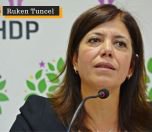* Photo: Anadolu Agency (AA) - Archive
Click to read the article in Turkish / Kurdish
The Ankara Chief Public Prosecutor's Office has prepared an indictment regarding the Kobani protests that took place on October 6-8, 2014.
108 people, including the arrested former Co-Chair of the Peoples' Democratic Party (HDP) Selahattin Demirtaş, are among the "suspects".
As reported by the state-run Anadolu Agency (AA), the indictment demands the penalization of all suspects on charges of "disrupting the unity and territorial integrity of the state", "killing for 37 times, "attempted killing for 31 times", "burning the flag" and "violating the Law on Protecting Atatürk."
Prepared by the Terror Crimes Investigation Bureau of the Ankara Chief Public Prosecutor's Office, the indictment has been sent to the Ankara 22nd Heavy Penal Court. If the court accepts the indictment, the investigation will turn into prosecution and a lawsuit will be filed at the related court.
What do his attorneys say?
Representing Demirtaş in the judicial process at the European Court of Human Rights (ECtHR), legists Kerem Altıparmak, Ramazan Demir and Mahsuni Karaman have made statements on social media.
Demir has said, "This indictment, which has no legal value after the judgement given by the Grand Chamber of the ECtHR, will be put aside in dusty shelves in a few years. It will not be enough if you release him; you will have to acquit him. This is, for now, just a matter of day and time."
Altıparmak has also said, "Ah, the Turkish judiciary... How miraculous coincidences does it have? The only problem is: You are never surprised."
Karaman has said, "The 'counter-move' came after the meeting of [President and ruling AKP Chair Recep Tayyip] Erdoğan and [MHP Chair Devlet] Bahçeli. But saying 'We will finish it off' falls short this time.
"Because the Grand Chamber of the ECtHR has already done it legally. Demirtaş and his friends must be legally released."
Erdoğan declared him a criminalPresident and ruling Justice and Development Party (AKP) Chair Recep Tayyip Erdoğan addressed the reporters and citizens after the cabinet meeting in the capital city of Ankara on December 28. Erdoğan talked about a series of issues, including the recent ECtHR Grand Chamber judgement on Selahattin Demirtaş. Repeating his former remarks on the ruling of immediate release given by the Grand Chamber, Erdoğan alleged that "the ECtHR gave a judgement which was contrary to its own legal procedures." "In response to this, we said, 'This is double standard, we will not enforce this ruling which is given not with legal, but political motivations.' Then, they were up in arms, asking me how I could say something like that. "If they had the authority to manage these affairs themselves, then, they would apparently release a terrorist supporter, with the blood on dozens of people in his hands, immediately," he added. Citing a series of offenses such as "aggravated killing for 37 times", "attempted killing for 29 times", "damage to property for 3,777 times", "detention for 25 times", "theft for 295 times", "plunder for 15 times", "violating the workplace and dwelling immunity for 308 times", "burning the Turkish flag for 13 times" and "violating the Law on Protecting Atatürk for 7 times", Erdoğan alleged that Selahattin Demirtaş was "responsible for the incidents of October 6-8, 2014, when 326 security officers and 435 citizens were wounded." Indicating that "Turkey did not deserve such a mindset of opposition," President and AKP Chair Erdoğan moved on to express his "belief that the country would introduce a radical reform of opposition with the will and wisdom of the ones voting for these parties." |
What happens if ECtHR judgement is defied?
CLICK - ECtHR Grand Chamber: Release Demirtaş immediately
The Grand Chamber of the European Court of Human Rights (ECtHR) has pronounced its judgement on former Peoples' Democratic Party (HDP) Co-Chair Selahattin Demirtaş, who has been arrested for over four years.
Reiterating the previous judgement handed down by the ECtHR, the Grand Chamber has concluded that Demirtaş was arrested for political reasons.
With the judgement pronounced today, the Grand Chamber has ruled that Demirtaş shall be released from prison immediately.
Speaking to bianet about the Grand Chamber's judgement, lawyer Ramazan Demir has said, "Demirtaş must be released immediately according to this judgement; Turkey has no justification left to fall back on."
CLICK - What will happen if Turkey doesn't release Demirtaş?
In an interview with bianet, attorney Benan Moluhas said that if the ECtHR ruling is not implemented it will have a series of consequences:
"Because the process can bring a series of sanctions from blocking licenses to not being able to be a candidate in Council of Europe elections and being removed from the Council of Europe.
What did Demirtaş say about accusations?Selahattin Demirtaş sent a message via his attorneys on June 11, 2018 and responded to "Kobani" allegations briefly as follows: "The date when violence and provocation began was not October 5 or 6, but October 7 and its aftermath, when Erdoğan made a statement that "Kobani fell or it is about to fall." After this statement, death started to occur. "There is a lawsuit filed against neither me nor the executives of the HDP due to the Kobani incidents. "The number of people massacred in Kobani is not 53, but 43. Six of them are from the [pro-Kurdish Islamist] Free Cause (HÜDAPAR), two are assassinated security offices, two are Syrian refugees and 33 are from the HDP. There is not a single effective investigation or lawsuit into the massacre of the people, except for six HÜDAPAR members. "Kobani incidents did not start in the aftermath of June 7, 2015, as alleged by Erdoğan, but eight months before the elections, on October 7, 2014. "Our talks with Erdoğan and AKP as part of the resolution process [for the Kurdish question] continued for five months after the Kobani incidents. In other words, Erdoğan continued meeting us, whom he now declares terrorists, for five more months. "The 12 Parliamentary questions and inquiries that we submitted to the Parliament to uncover the provocateurs and instigators behind the Kobani incidents were rejected by the AKP MPs. "Erdoğan does not even care about Yasin Börü and the massacred people. Erdoğan did not shy away from using this as a tool of exploitation and, for this reason, he brought up the issue during election periods. "Just like Yasin Börü, our citizens such as Ekrem Karaçoğlu and Musa Bayram in Gaziantep and İzmir were lynched before the cameras. However, their perpetrators were not found. Erdoğan did not even know the names of these people. Because these people are from the HDP. "What makes Erdoğan miserable is not our brutally massacred citizens, but the fact that the ISSI was defeated in Kobani. "It was [the then Interior Minister] Efkan Ala, who himself told us that some governors and security officers did not obey the instructions of the government during the Kobani incidents. These people were arrested for plotting a coup after June 15 [2016]. However, no investigation has been conducted against these people over Kobani incidents. "Just as in the case of Roboski Massacre, the massacre of Berkin, Ceylan and Uğur, the person who is politically responsible for Kobani incidents is Recep Tayyip Erdoğan. To hide this responsibility, he keeps on accusing me with his insidious lies and slanders." |
About Kobani protestsBefore the protests held to support Kobani in northern Syria in 2014, those who were waiting in the district of Suruç, Urfa in southeastern Turkey and wanted to cross the border were intervened with pepper gas and rubber bullets. In the meantime, some pictures allegedly showing ISIS militia crossing the border of Turkey were published. President and ruling AKP Chair Recep Tayyip Erdoğan made statements indicating that they equated PKK with ISIS. While the wounded coming from Kobani were kept waiting on the border, the wounded from ISIS were treated at hospitals. Several news reports were reported in the press, saying "Kobani fell." These news reports were denied every time. After the HDP made a call to take to the streets against a possible massacre in Kobani, thousands of people protested in Kurdish-majority provinces as well as Ankara and İstanbul. While left parties also supported these protests, deaths also occurred with the onset of police violence. Street conflicts ensued. 42 people lost their lives from October 6 to 12, 2014. According to a report by the Human Rights Association (İHD), 46 people died, 682 people were wounded and 323 people were arrested in the protests held between September 7 and 12, 2014. As reported by the AA, 31 people lost their lives, 221 citizens and 139 police officers were wounded. |
(EKN/SD)





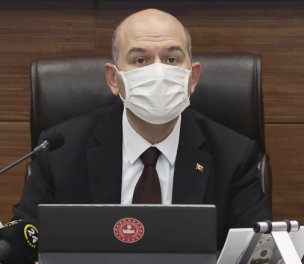
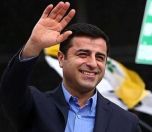
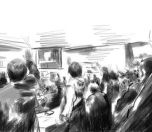
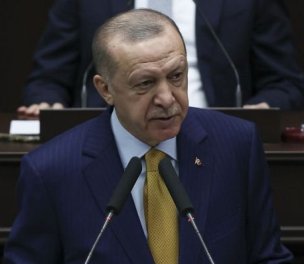
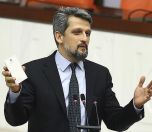


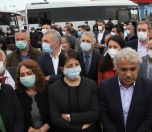
-132.jpg)
